Unleash the Power of Coffee Grounds
What do you do with the coffee grounds once you’re finished with your coffee? If you’re just throwing them away, you’re wasting a valuable resource! Used coffee grounds have a surprising number of hidden talents. You can use coffee grounds for a variety of different tasks, both in and outside of the home. Let’s explore some creative ways to give your coffee grounds a second life!
The Natural Elements Found In Coffee
Coffee’s magic goes beyond its delicious taste and energizing effects. Nestled within each cup lies a complex blend of natural elements that contribute to its unique flavor profile and offer surprising benefits. One key player is nitrogen, a crucial nutrient for plant growth. Coffee beans are naturally rich in nitrogen, and some of it remains even after brewing. This nitrogen content makes used coffee grounds a valuable addition to compost piles, where they decompose and release nitrogen for hungry plants. Additionally, their abrasive nature makes them a natural cleaning scrub and their odor-absorbing properties offer a green alternative for deodorizing your home.
Another hidden gem in coffee is a group of compounds called phenols. These include antioxidants that can help neutralize harmful free radicals in the body, potentially contributing to overall health. Additionally, some phenols, like tannins, contribute to coffee’s characteristic bitterness. While some may find this a drawback, tannins also boast anti-bacterial and anti-fungal properties. This makes used coffee grounds a potential natural deterrent for mold and fungus growth, both in your home and garden.
Additionally, coffee beans are rich in calcium, potassium, magnesium, and manganese, which are vital for fostering robust and flourishing plants. By incorporating coffee grounds into the soil, gardeners can enhance the nutrient content, promoting optimal conditions for plant development and resilience against environmental stressors.
Hidden Potential of Coffee Grounds
Coffee grounds: more than just the end of a delicious brew! Packed with natural power, they hold unexpected uses beyond your morning cup. Join us as we explore how we can utilize these grounds in different areas of our lives, minimizing waste while maximizing their potential.
1. Natural Pest Repellent
Coffee grounds offer a safe, natural, and surprisingly effective way to combat unwanted visitors in your garden. The high nitrogen content in coffee grounds acts as a deterrent to many common garden pests like slugs, snails, and ants. They find the grounds unpalatable and tend to steer clear.
Moreover, the sharp scent and bitter taste of coffee grounds deter some mammals like rabbits and deer from approaching the area. Not only does this method rid your garden of bothersome pests, but it also enriches the soil with valuable nutrients, benefiting your plants in the process. Altogether, it represents a clever and straightforward approach to safeguarding your plants—making optimal use of your surplus coffee grounds!
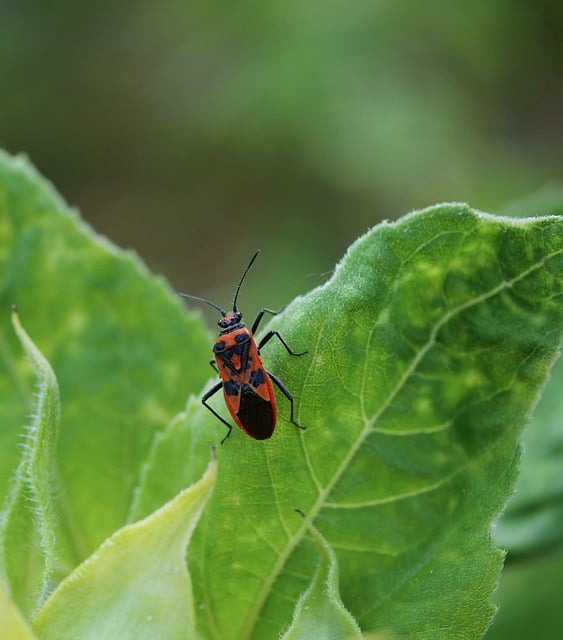
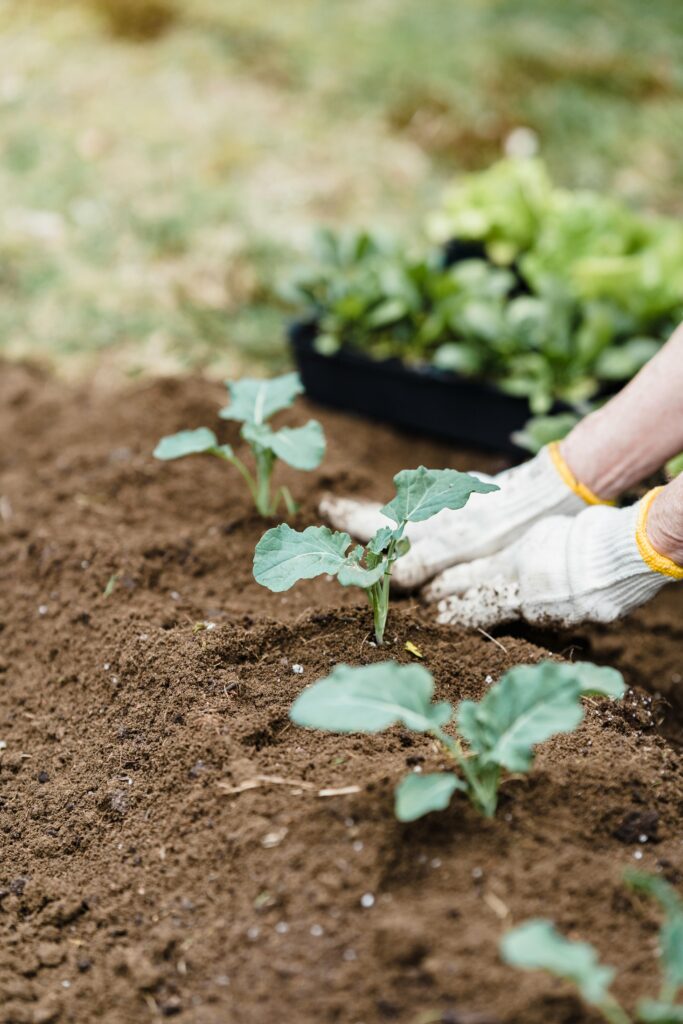
2. Fertilize Your Garden
Coffee grounds hold a hidden potential for your garden – a natural fertilizer boost. Coffee grounds are packed with nitrogen, a crucial element for healthy plant growth. When composted, they decompose into a rich organic matter that releases this nitrogen slowly over time. This provides your plants with a steady supply of this essential nutrient, promoting strong stems and vibrant foliage. Adding coffee grounds to your compost pile is a simple and sustainable way to give your plants the nourishment they crave, all while reducing waste and creating a more flourishing garden.
You can easily use coffee grounds directly in your garden. Simply sprinkle them around the base of your existing plants, or mix them into the soil before planting new ones. This simple step transforms leftover grounds into a powerful, eco-friendly resource that nourishes your plants and promotes healthy growth. So the next time you finish your coffee, give your garden a boost – you’ll be surprised at the positive results!
3. Enhancing Seed Germination
Coffee grounds can also play a crucial role in the seeding process. When mixed with soil, they provide a nutrient-rich environment that promotes seed germination and early plant growth. The texture of coffee grounds helps to retain moisture, ensuring that seeds remain hydrated during the critical germination period. Additionally, as coffee grounds decompose, they release beneficial compounds into the soil, further nourishing emerging seedlings. By incorporating coffee grounds into the seeding process, gardeners can enhance the success rate of their plantings while simultaneously repurposing a commonly discarded resource.
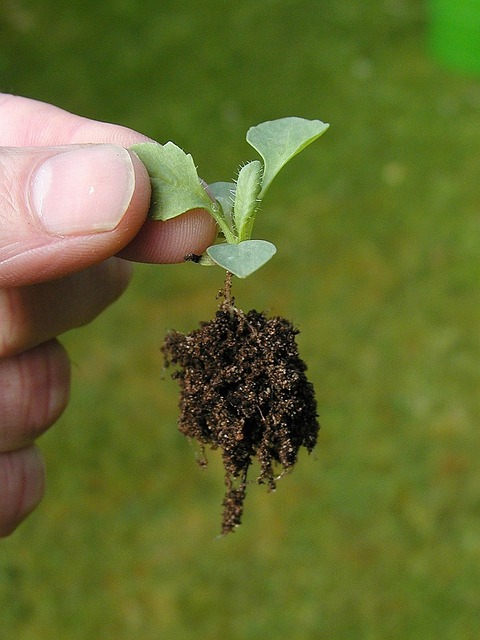
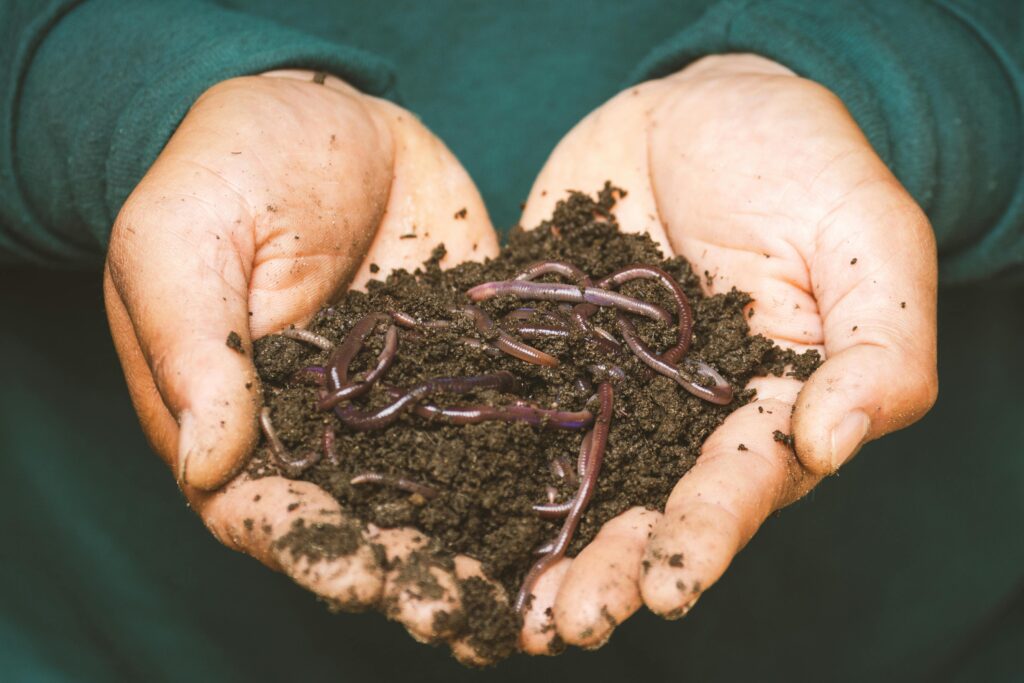
4. Nutrient-Rich Treats for Your Worm Bin
Coffee grounds can be a delightful treat for your wiggly friends in the worm bin! The grounds offer a double dose of goodness for your worm colony. Firstly, they’re a fantastic source of nitrogen, a key nutrient that worms need for healthy growth and reproduction. Secondly, the slightly acidic nature of coffee grounds helps to balance the pH level in your worm bin, creating an optimal environment for these decomposers to thrive.
However, moderation is key! Too much coffee can overwhelm your worms, so it’s best to add them in small amounts and monitor the overall moisture content of the bin. With a sprinkle here and there, coffee grounds can become a delicious and nutritious addition to your worm’s happy home.
5. Key Contributors to Nutrient-Rich Compost
Don’t underestimate the power of coffee grounds in your compost bin! Coffee grounds are a fantastic source of nitrogen, a crucial ingredient for the decomposition process. This “green” material helps balance out the “brown” materials like dead leaves or cardboard, which are high in carbon. This perfect balance ensures efficient decomposition and leads to a more nutrient-rich compost.
The texture of coffee grounds helps aerate the compost pile. This allows for better air circulation, which is essential for the breakdown process and helps create a healthy environment for the microorganisms that do the decomposing.
Coffee grounds act like tiny sponges, helping retain moisture in the compost pile. This is especially beneficial in drier climates or during hot weather, ensuring consistent moisture levels for optimal decomposition. As a bonus, the slightly acidic nature of coffee grounds can help balance the overall pH level in your compost, creating a healthy environment for the decomposition process.
By incorporating coffee grounds into your compost, you’ll be providing a valuable resource for the hardworking decomposers and ultimately create a more potent and beneficial compost for your garden.


6. Natural Deodorizer
Coffee grounds possess a remarkable ability to absorb odors, making them a versatile and natural solution for combating unwanted smells in various settings. Whether placed in a bowl in the fridge, scattered in a muslin sachet in the pantry, or sprinkled into shoes, coffee grounds effectively neutralize and eliminate unpleasant odors. This odor-absorbing property stems from the porous nature of coffee grounds, which allows them to trap and absorb odor molecules, leaving the surrounding environment smelling fresh and clean. coffee grounds serve as an eco-friendly alternative to chemical-based air fresheners and deodorizers, offering a simple yet effective solution for maintaining a pleasant and inviting atmosphere.
Simply place a bowl of used coffee grounds in your refrigerator, freezer, or near a trash can. As the grounds absorb the unpleasant odors, your home will remain fresh and inviting. So next time you brew a pot, consider giving those leftover grounds a second life as an odor-fighting champion! Coffee grounds will serve as an eco-friendly alternative to chemical-based air fresheners and deodorizers, offering a simple yet effective solution for maintaining a pleasant and inviting atmosphere.
7. Secret Cleaning Weapon
Coffee grounds can also be surprisingly effective cleaning scrubs. The grounds’ coarse texture acts like a natural abrasive, ideal for tackling tough jobs around the house. Simply sprinkle some grounds directly onto greasy pots, pans, or even grill grates. With a little elbow grease, the grounds will help remove stubborn grime and baked-on food particles. Just be mindful of using them on delicate surfaces, as the abrasiveness could cause scratches. Coffee grounds are a safe, eco-friendly, and budget-friendly alternative to harsh chemical cleaners, making them a valuable addition to your cleaning arsenal.
Plus, their natural deodorizing properties can help eliminate lingering food smells. So next time you’re tackling a tough cleaning job, ditch the harsh chemicals and reach for your leftover coffee grounds – you might be surprised by their cleaning power!
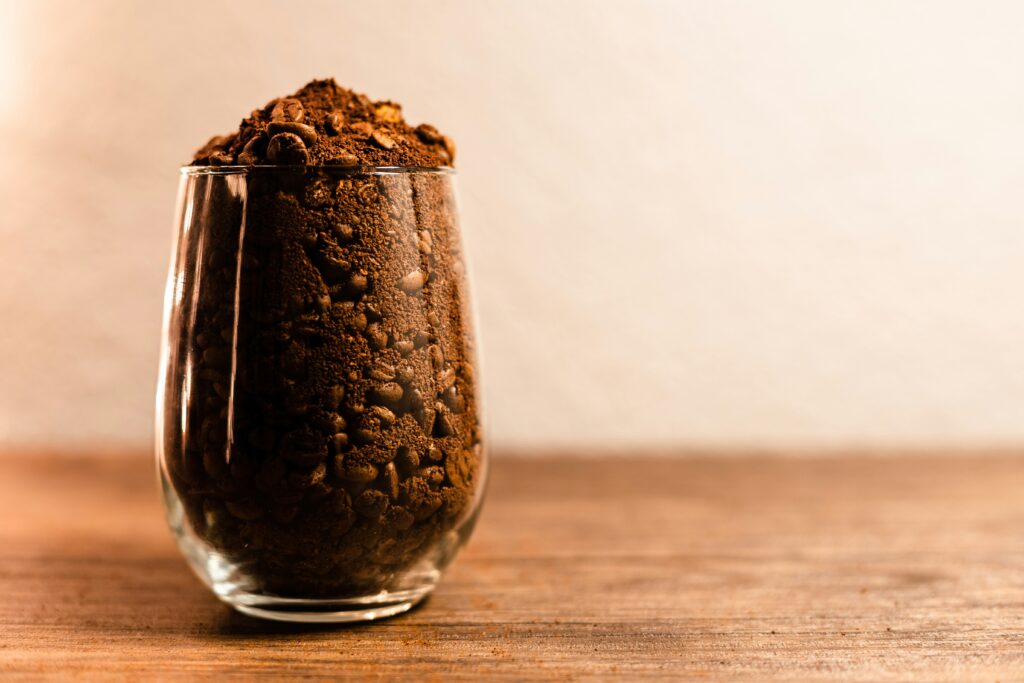
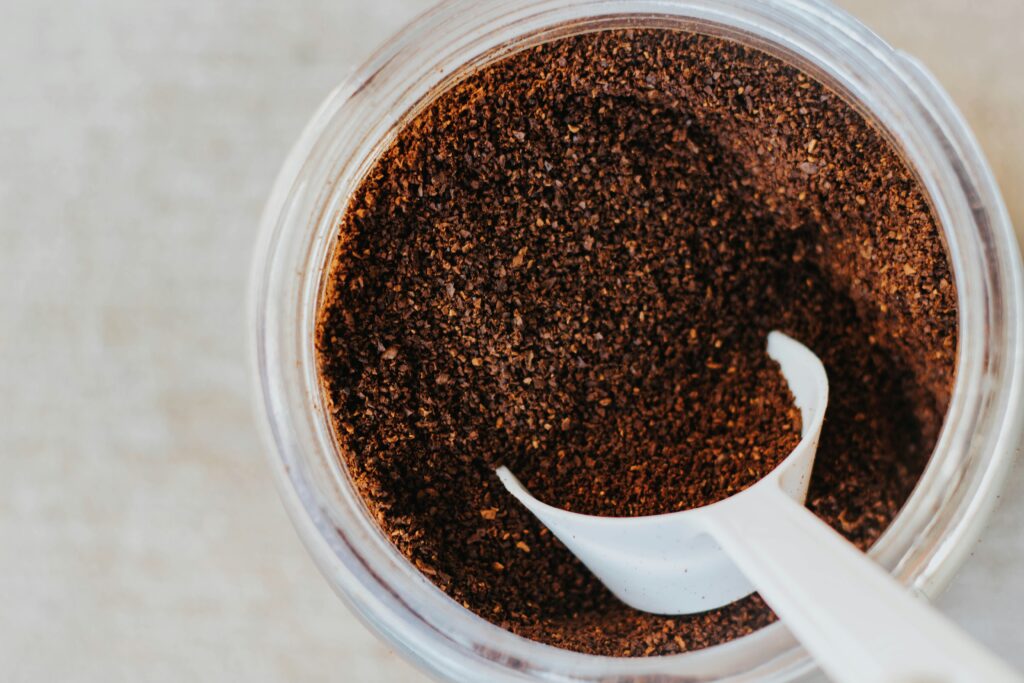
8. Natural Hand Deodorizer
Coffee grounds act as a natural deodorizer, effectively absorbing and neutralizing unpleasant smells. After tackling tasks like chopping garlic or onions, simply rub a handful of used coffee grounds on your hands. The grounds will trap and neutralize the odor molecules, leaving your hands smelling fresh and clean. This is a natural and gentle alternative to harsh chemical soaps, making it a great option for those with sensitive skin. Plus, unlike some store-bought odor absorbers, coffee grounds won’t leave behind any lingering scents of their own. So next time you’re battling a stubborn kitchen smell on your hands, ditch the harsh chemicals and reach for the coffee grounds – they’ll leave you feeling refreshed and odor-free!
9. Artistic Potential of Coffee Grounds
Unleash your inner artist with the unexpected potential of coffee grounds! These leftover grounds aren’t just for fertilizing your garden or scrubbing away grime. Believe it or not, they can be transformed into a natural and earthy dye for various artistic endeavors. From creating a warm, brown palette for paintings and drawings to dyeing fabrics for a unique, rustic touch, coffee grounds offer a sustainable and budget-friendly alternative to traditional art supplies. The used grounds can be simmered in water to create a concentrated dye bath, allowing you to experiment with different shades depending on the strength and duration of the simmering process. So next time you finish your cup of coffee, hold onto those grounds – they might just spark your creativity and inspire your next artistic masterpiece!


10. Enhancing Soil for Acid-Loving Plants
Coffee grounds serve as an excellent soil amendment for acid-loving plants, thanks to their acidic nature. This feature makes them particularly beneficial for plants such as azaleas, cranberries, blueberries, hydrangeas, and many vegetables, including tomatoes, peppers, and eggplants which thrive in acidic soil conditions. When incorporated into the soil, coffee grounds help lower the pH level, creating an environment that is more conducive to the growth and development of these plants. Additionally, coffee grounds contribute organic matter to the soil, improving its structure and promoting nutrient absorption. By utilizing coffee grounds as a soil amendment, gardeners can ensure that their acid-loving plants receive the optimal conditions necessary for healthy growth and vibrant blooms.










